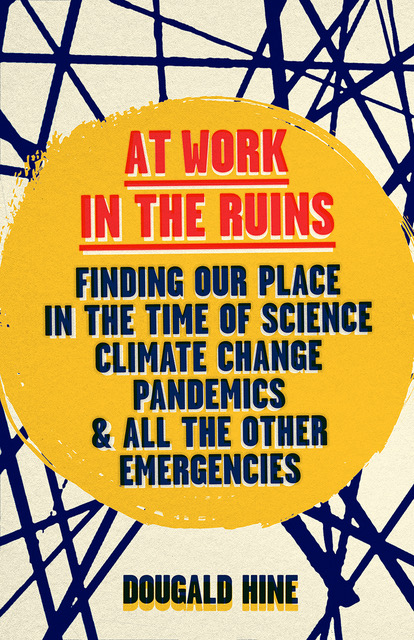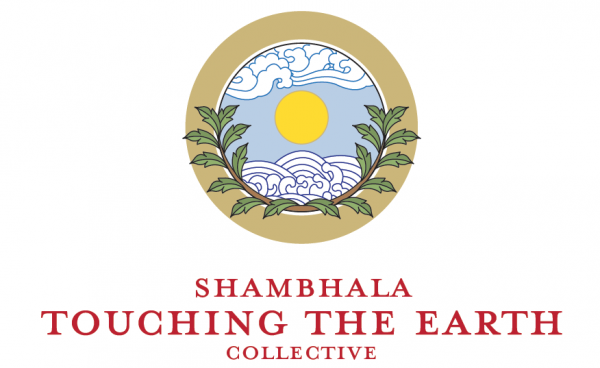Tuesday
Opinion PiecesAt Work in the Ruins: Finding Our Place in the Time of Science, Climate Change, Pandemics & All the Other Emergencies by Dougald Hine
A Touching the Earth Collective Book Review by Gregory Webster
Dougald Hine has a knack for timely interventions. In 2009 he collaborated with Paul Kingsnorth to write Uncivilisation, the manifesto that launched the Dark Mountain Project – soon to be described by the New York Times as “changing the environmental debate in Britain and the rest of Europe.” The pamphlet articulated what many in the environmental movement had been thinking, but few were prepared to say out loud. It punctured the myths of progress, human supremacy and the possibility of endless economic growth. It allowed us to look down into the abyss. In doing so not only did they give voice to a community of creators and thinkers who had arrived at a similar place by themselves, they also foretold the next convulsion of environmental activism; within a decade Extinction Rebellion were saying the previously unsayable very loudly on the streets: this may not end well.
Fast forward to our war torn post-pandemic world and his new book At Work in the Ruins. Hine again delivers a strikingly resonant diagnosis of where events have led us and where
we might go next. We find ourselves at a fork in the road; do we convince ourselves that our current trajectory can be maintained by messiah technologies and ever increasing human
management of a biologically impoverished world, or do we take a turn off this highway to nowhere and follow paths less well trodden, at least by our industrial civilisation? The latter
choice is messy and small scale, with outcomes often unknown. Old certainties and alliances lose their agency and new uncomfortable bedfellows might emerge.
Hine’s take on how the response to the pandemic has amplified the authority of science in some questionable ways is of particular note. He sees false equivalence between our deserved confidence in half a century of accumulated climate science and our embryonic understanding of a novel coronavirus. But the pandemic has made science monolithic and unquestionable, something we must “unite behind,” justifying sweeping policy decisions and fast-tracking new technologies. He wisely treads this territory carefully, avoiding the boobytraps and entrenchment that make any meaningful societal debate of such issues seem nigh on impossible in these interesting times. More widely he asks the question “are we asking too much of science?” We are increasingly adept at quantifying the scale of our
environmental predicaments through the lens of science, but science on its own is not qualified to answer how we got ourselves into this mess (or indeed where we go from here). That’s down to our judgement, a wholly more fragile endeavor. Moreover, viewing our options solely through the authority now bestowed upon science leads inexorably towards that highway to techno-dystopia.
Hine addresses some very big topics here (many not touched upon in this review), his writing style is always personable and respectful, gently but clinically challenging some of the more questionable analyses of our plight. We meet the people who have illuminated his path through these years, from old dependables like Ivan Illich and his circle, to more recent voices such as Vanessa Machado de Oliveira, author of the seminal Hospicing Modernity.
Ultimately Hind allows us to join him on his own journey through our tumultuous times. He has characterized this process as one of “giving up,” a precondition perhaps for “seeing the world otherwise,” even though there is no certainty as to what comes next. To quote Uncivilisation, “the end of the world as we know it is not the end of the world.” At Work in the Ruins reminds us that other worlds are possible beyond the dying artifice of modernity.
Gregory Webster is a Trustee of his local Wildlife Trust (BBOWT), Chair of ecological
consultancy Future Nature WTC, and a Shambhala Touching the Earth Collective steering
committee member. He lives and works in Oxford, England.
https://shambhalaonline.org/touching-the-earth/


















